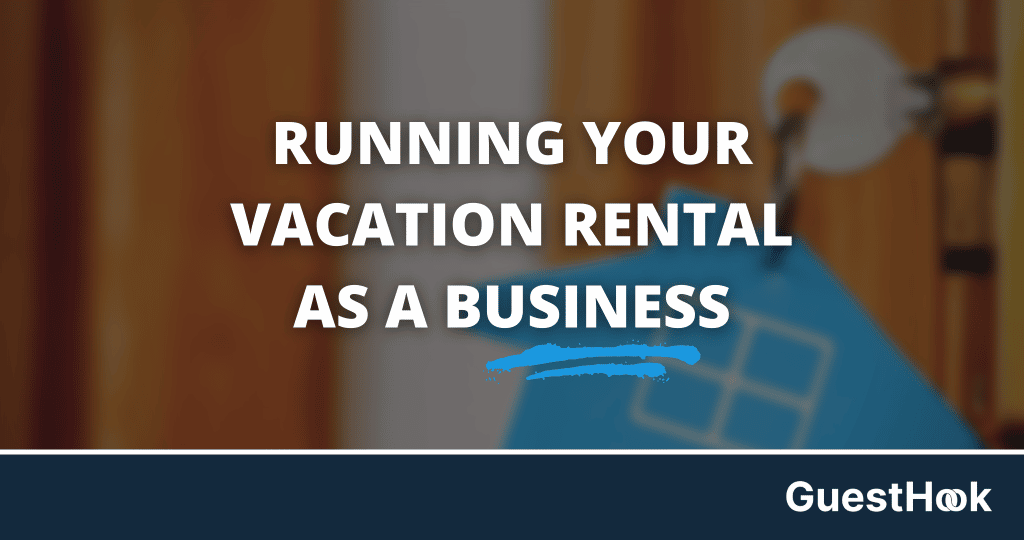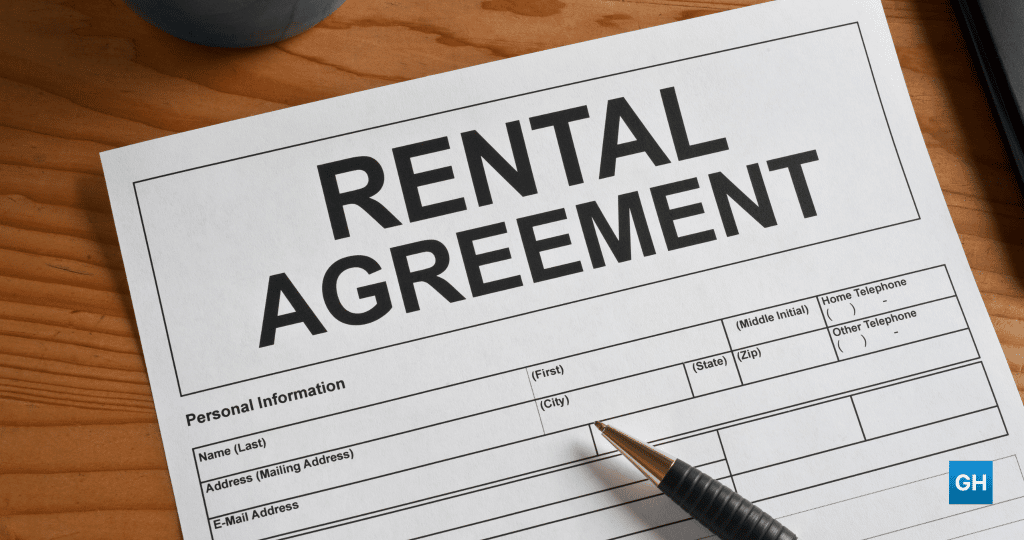Running Your Vacation Rental Like a Business

From the casual weekend renter to property management companies with huge portfolios, it seems like everyone is trying to get involved in the vacation rental or short-term rental business these days. However, there are certain things you can do to make your property stand out from the crowd while also protecting your investment by running your vacation rental like a business rather than a side hobby. Smart hosts are using creative approaches while staying on top of rules and regulations to ensure their guests are happy, their homes are protected, and their bookings stay consistent. Running your vacation rental like a business is a savvy way to keep your guests happy while also setting yourself up for success. After all, the key to rising above the market with your vacation rental business is to invest in a great property, a fantastic guest experience to make your vacation home rental stand out from other homeowners and property owners in your area!
Creating a solid plan may actually start before you even welcome your first potential guests & they check-in: it can start with planning (like a business plan) out the entire process that your short-term rental property will be like to stay at, starting from browsing on listing sites all the way through checkout.
Make a great first impression with professional photos

The key to getting someone to book your property is to make a great first impression, and in a world filled with shiny objects, your listing photos for your vacation rental property need to be eye-catching. Hiring a specialized vacation-rental or even real estate photographer ensures your vacation rental is captured in flattering light and seen from all the right angles. While this initial investment may seem burdensome, it will quickly pay for itself.
Running your vacation rental like a business means looking professional, and unfortunately, snapping a few photos with your iPhone just won’t cut it. Accurately representing your property while also capturing it in a flattering way will attract far more bookings and provide you with a hefty content library to use for social media or other marketing efforts. Put simply: professional photography is the bare minimum market asset you can use on rental sites/listing sites like Airbnb, Vrbo (formerly Homeaway) and Booking.com to grow your occupancy rates and profitability.
Business licenses, taxes, and insurance

Once mostly unsupervised, the vacation rental industry is now heavily regulated by local laws and taxing requirements. Some places even require vacation rentals to have a business license in order to operate. To run your vacation rental like a business, you need to understand what rules and requirements are in place for your location and follow these guidelines closely.
Contact your local government and find out what you need to do to ensure your business is running legally in order to avoid hefty fines. Certain levels of insurance may be required when you are renting out your home short term. Many cities and states require you to charge a lodging tax or something similar for each booking. Make sure you are collecting these taxes and paying them quarterly to avoid a big bill at the end of the year.
Update your listing regularly

Keeping your listing’s content fresh is not only engaging to potential bookers, but it gives you an opportunity to highlight seasonal features of your property while guaranteeing your listing’s accuracy. Guests want to know exactly what they are getting when they book and if expectations don’t align with reality then you should be ready to receive some nasty reviews.
If you list on larger sites like Airbnb and Vrbo, their algorithms are designed to respond to listings which are regularly updated, boosting you in the search result and driving more bookings. Running your vacation rental like a business means creating a trustworthy look and feel for your property, and by using descriptive language and accurate information, you are setting yourself and your listing up for success.
Set up an LLC to protect yourself & your finances

For many hosts with only one vacation rental, an LLC is not essential. However, if you plan to operate a portfolio of homes as a vacation rental company then an LLC is a wise investment. Not only can this designation protect you personally from lawsuits brought by renters, it keeps things neat and tidy as far as taxes and accounting go.
But keep in mind, regardless of whether you choose sole proprietorship or LLC, it is important that you have at least $1 million liability insurance on your property. Umbrella policies may be a good option to cover your bases if a guest is injured or sues you for damages that they incur while staying at your property. Vacation-rental specific insurance providers can provide even more coverage — at a slightly higher cost — but with much more flexibility in covering damage or possible lawsuits.
Keep a separate bank account

If you started any other kind of business, you would keep your finances separate so why should your vacation rental be different? Running your vacation rental like a business means having a specific account to pay business related expenses out of. Whether this is an account where you pay and collect taxes or purchase new decor for your vacation rental, it is imperative for you to keep your finances as organized as possible. When tax season rolls around, you won’t regret it!
Invest in creature comforts

Amenities are one of the most important parts of a vacation. Guests don’t want to be limited to what they can and can’t do just because the house where they are staying skimped on the details. Certain amenities like Wifi and extra paper products are non-negotiable for the modern traveler. Well-stocked kitchens with appliances are another important investment for a high-quality guest experience.
Running your vacation rental like a business means anticipating your guest’s needs and providing for them. What brings someone to your area? What types of amenities or add-ons could you provide to enhance their visit? Put yourself in their shoes and get creative!
Have a property inspection checklist

It is easy for details to fall through the cracks when getting your property ready for a new guest. When turnaround time is short between departures and arrivals, important particulars are often overlooked. Create a property inspection checklist to ensure you are literally checking all of the boxes. Maybe this means making sure there are enough towels in each bathroom or checking to see if the dishwasher was emptied.
Guests don’t want to be reminded of past guests and they certainly don’t want to have to put away someone else’s dishes. Making sure the little things are taken care of before a guest arrives will prevent big problems with guest satisfaction later into their stay.
Market your home like a product

Any good business owner recognizes the power of a solid marketing strategy. Even for smaller property management companies or hosts, running a vacation rental like a business involves listing their portfolio on sites like Airbnb or Vrbo, nurturing a social media presence, working on a branded site and even reaching out to past guests using email marketing. Your rental income goes from “OK” to great when you raise nightly rates by making your second home or vacation rental be as in-demand as possible.
Obviously, it is asking a lot of most hosts to do all of these things, but if you have the capacity to do any of the above your bookings will flourish.
Price your home for year round success

Understanding your market is tantamount to running your vacation rental like a business. Are there trends in seasonality? What major events might bring guests to your market? How is your home priced compared to comparable homes in your neighborhood? Monitoring trends in pricing and availability is a savvy way to make sure your rental stays competitive especially in a crowded marketplace.
Vacation rental management firms in your market may be deploying tools that help them check their prices daily (often called dynamic pricing) and adjust rates accordingly. While many vacation rental owners can’t check and adjust rates daily, your own vacation rental pricing strategy shouldn’t be static either. Knowing when the peak season is and when low season rates need to come into play is the best way to “squeeze” all of the revenue possible from your property.
Always use a rental agreement

Protecting yourself and your property should be one of the most important things to consider when getting into the world of vacation rentals. A rental agreement can help protect you, your home, and your guests. Designating a contractual cancellation policy holds a guest accountable for any last minute changes of heart and keeps you from losing all of that valuable revenue. Additionally, it can help clarify the finer details of cleaning fees, pet damage, or any other unforeseen costs which might arise.
The key to running your vacation rental like a business is to think like someone running any other kind of business would. Marketing, financial concerns and management, as well as understanding your market are essential for driving bookings and revenue. A professional product appearance paired with business acumen make the perfect combination for a successful rental strategy. By treating your vacation rental like a business, you will not only protect yourself but make the process much more enjoyable for you and your guests.
Take The Next Step
- Download our free Vacation Rental Marketing Blueprint and watch our FREE training on how to build an actionable, advanced marketing plan for your rental properties.
- If you want to learn more about how to generate more bookings, visit our blog and read our articles.
- To get started working with us, visit our contact page, complete the form and schedule a call.
- If you’ve found this article helpful, please share it with your friends, team or other vacation rental owners/hosts!